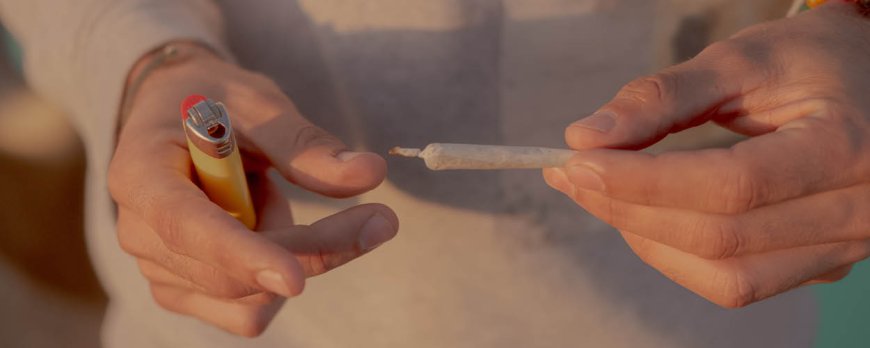How Long Does It Take to Detox Your Body from Tobacco?
Uncover the timeline of tobacco detoxification with 'How long does it take to detox your body from tobacco?' Explore the stages, tips, and benefits.

How Long Does It Take to Detox Your Body from Tobacco?
Detoxifying your body from tobacco is a process that varies in duration depending on several factors. The time it takes to eliminate tobacco toxins from your system can be influenced by the frequency and duration of tobacco use, the type of tobacco product used, and individual factors like genetics and metabolism.
During the detoxification process, it's important to understand the timeline for eliminating nicotine and its metabolite cotinine from your body. Nicotine can typically be detected in the blood for a few hours to up to three days, while cotinine can remain detectable in the blood for up to 1-10 days. In urine, nicotine and cotinine can be detected for up to four days, although in heavy smokers, cotinine may be detectable for up to three weeks. Saliva testing typically yields similar results to blood testing, with nicotine and cotinine detectable for about four days. Hair follicle testing, on the other hand, can detect nicotine for up to three months or even a year.
When you decide to quit smoking and detox your body from tobacco, you may experience nicotine withdrawal symptoms. These symptoms can last for several weeks and might include physical symptoms like increased appetite, cravings, cough, headaches, and dizziness, as well as psychological symptoms such as anxiety, depression, irritability, and difficulty concentrating.
The best approach to detoxify your body from nicotine is to stop using tobacco products and allow time for it to naturally clear from your system. Additionally, certain lifestyle habits can support your body's natural detoxification process. Drinking plenty of water helps flush out toxins, exercising regularly promotes blood circulation and accelerates the removal of toxins, and consuming a healthy diet rich in antioxidants aids in the detoxification process.
Key Takeaways:
- The duration of tobacco detoxification varies depending on factors like frequency and duration of tobacco use.
- Nicotine and cotinine can be detected in the body for different durations, depending on the type of test used.
- Nicotine withdrawal symptoms may occur when quitting smoking, lasting for several weeks.
- Quitting smoking and allowing time for nicotine to clear is the most effective way to detoxify your body from tobacco.
- Supporting the detoxification process with water intake, regular exercise, and a healthy diet can be beneficial.
Understanding Nicotine and Cotinine Detection
Nicotine and cotinine can be detected in the body for varying lengths of time, depending on the testing method and frequency of tobacco use. These substances are commonly measured in blood, urine, saliva, and hair follicles to determine tobacco use.
Blood Testing:
- Nicotine can be detected in the blood for a few hours to up to three days after tobacco use.
- Cotinine, a metabolite of nicotine, can remain detectable in the blood for up to 1-10 days.
Urine Testing:
- Nicotine and cotinine can be detected in urine for up to four days after tobacco use.
- In heavy smokers, cotinine may be detectable in urine for up to three weeks.
Saliva Testing:
- Nicotine and cotinine can be detected in saliva for about the same duration as in blood, up to four days.
Hair Follicle Testing:
- Hair follicle testing can detect nicotine for up to three months or even a year after tobacco use.
Quitting smoking can lead to nicotine withdrawal symptoms, which can last for several weeks and include both physical and psychological symptoms. Physical symptoms may include increased appetite, cravings, cough, headaches, and dizziness. Psychological symptoms can include anxiety, depression, irritability, and difficulty concentrating.
The best way to detox your body from nicotine is to stop using tobacco products and allow time for it to clear from your system naturally. Additionally, drinking plenty of water, exercising regularly, and consuming a healthy diet rich in antioxidants can support the body's natural detoxification process.

Nicotine Withdrawal Symptoms and Duration
When you quit smoking, your body may go through nicotine withdrawal, leading to a range of symptoms that can last for weeks. Nicotine, the addictive substance in tobacco, has both physical and psychological effects on the body, and the sudden absence of nicotine can trigger these withdrawal symptoms.
Physical symptoms
- Increased appetite
- Intense cravings for nicotine
- Cough
- Headaches
- Dizziness
Psychological symptoms
- Anxiety
- Depression
- Irritability
- Difficulty concentrating
The severity and duration of these symptoms can vary from person to person, as everyone's response to nicotine withdrawal is unique. Some individuals may experience mild symptoms that last for a few days, while others may experience more intense symptoms that persist for several weeks. It's important to recognize that these symptoms are temporary and are part of the body's adjustment process to the absence of nicotine.
H3: Coping with withdrawal symptoms
While nicotine withdrawal symptoms can be challenging, there are strategies that can help alleviate the discomfort:
- Engage in regular physical activity, as exercise can help reduce cravings and improve mood.
- Stay hydrated by drinking plenty of water, as it can help flush out toxins and support overall well-being.
- Get plenty of rest and practice stress-reducing techniques such as deep breathing and meditation.
- Seek support from friends, family, or a healthcare professional, who can provide guidance and encouragement throughout the withdrawal process.
Remember, quitting smoking is a significant step towards better health, and while nicotine withdrawal symptoms may be challenging, they are temporary. Stay committed to your decision to quit and know that with time, your body will adjust and the symptoms will gradually subside.

The Importance of Quitting Tobacco
Quitting tobacco has numerous benefits for your health and well-being. Detoxifying your body from tobacco can significantly improve your overall health, reduce your risk of various diseases, and boost your energy levels. Here are some of the key benefits:
- Better respiratory health: Quitting tobacco can help improve lung function and reduce the risk of respiratory conditions such as chronic bronchitis and lung cancer.
- Lower risk of cardiovascular diseases: Tobacco use is a major risk factor for heart diseases and strokes. By quitting, you can reduce your risk and improve your cardiovascular health.
- Improved immune system: Tobacco use weakens the immune system, making you more susceptible to infections and diseases. Detoxifying your body from tobacco can boost your immune system, helping you stay healthier.
Additionally, quitting tobacco can have positive effects on your mental well-being. Research shows that quitting smoking can lead to a reduction in stress, anxiety, and depression levels. It can also improve your sense of smell and taste, enhance your oral health, and promote healthier skin.
The Journey to a Tobacco-Free Life
Quitting tobacco is a journey that requires dedication and support. While it may be challenging, there are various resources available to help you succeed. Consider seeking support from healthcare professionals, joining support groups, or using nicotine replacement therapies to manage withdrawal symptoms.
To support your body's natural detoxification process, incorporate healthy habits into your daily routine. Drink plenty of water to flush out toxins, engage in regular exercise to improve blood circulation and accelerate the removal of toxins, and consume a diet rich in antioxidants to promote overall well-being.
Remember, every step you take towards quitting tobacco contributes to your long-term health. Celebrate each milestone and stay motivated by focusing on the positive changes you're making for yourself and your loved ones.
Steps to Detox Your Body from Tobacco
Here are some steps to help you detox your body from tobacco and support your overall health:
- Quit smoking: The first and most important step in detoxifying your body from tobacco is to quit smoking. This will allow your body to naturally eliminate nicotine and other harmful substances.
- Drink plenty of water: Staying hydrated is crucial for the detoxification process. Water helps flush out toxins from your system and keeps your body hydrated, which aids in overall health.
- Exercise regularly: Engaging in physical activity not only helps improve your lung function but also accelerates the removal of toxins from your body. Aim for at least 30 minutes of moderate-intensity exercise each day.
- Eat a healthy diet: Consuming a diet rich in antioxidants can support your body's natural detoxification process. Include fruits, vegetables, whole grains, and lean proteins in your meals to provide your body with essential nutrients.
If relevant:
Additional techniques for tobacco detoxification:
- Seek support: Consider reaching out to a healthcare professional or joining a support group to help you stay motivated and receive guidance throughout the detoxification process.
- Practice stress management: Stress can trigger cravings for tobacco, so finding healthy ways to manage stress, such as practicing mindfulness, deep breathing exercises, or engaging in hobbies, can be beneficial.
- Get enough rest: Adequate sleep is essential for your overall health and can support the detoxification process. Aim for 7-9 hours of quality sleep each night.
Remember, detoxifying your body from tobacco takes time, and the duration may vary for each individual. Be patient with yourself and celebrate each step towards a healthier, tobacco-free lifestyle.

Quitting Tobacco and Clearing Nicotine from the Body
Quitting smoking is the first and most important step in clearing nicotine from your body. When you stop using tobacco products, the body begins the detoxification process to eliminate nicotine and its metabolites. The timeline for nicotine elimination varies from person to person, depending on several factors.
Factors influencing nicotine elimination:
- Frequency and duration of tobacco use
- Type of tobacco product used
- Individual factors like genetics and metabolism
Timeline for nicotine elimination:
- Nicotine can be detected in the blood for a few hours to up to three days.
- Cotinine, a metabolite of nicotine, can remain detectable in the blood for up to 1-10 days.
- In urine, nicotine and cotinine can be detected for up to four days, but in heavy smokers, cotinine may be detectable for up to three weeks.
- Saliva testing can detect nicotine and cotinine for about the same duration as in blood, up to four days.
- Hair follicle testing can detect nicotine for up to three months or even a year.
While the body works to eliminate nicotine, individuals may experience nicotine withdrawal symptoms. These symptoms can last for several weeks and can include physical symptoms such as increased appetite, cravings, cough, headaches, and dizziness. Psychological symptoms like anxiety, depression, irritability, and difficulty concentrating may also be present.
To support the body's natural detoxification process, it is essential to adopt healthy habits. Drinking plenty of water helps flush out toxins and keeps your body hydrated. Regular exercise promotes blood circulation, accelerates toxin removal, and improves lung function. Consuming a healthy diet rich in antioxidants aids in detoxification and overall well-being. By quitting smoking and incorporating these supportive measures, you can effectively detox your body from tobacco toxins.

The Role of Water in Tobacco Detoxification
Staying hydrated by drinking plenty of water is crucial in the detoxification process from tobacco. Water helps flush out toxins from the body and plays a vital role in supporting overall health. When you quit smoking and begin the detoxification process, water acts as a natural cleanser, helping to eliminate nicotine and other harmful substances.
Water aids in the removal of toxins by increasing urine production, enabling the body to expel nicotine and its metabolites more efficiently. It also helps alleviate some of the symptoms associated with nicotine withdrawal, such as headaches and dizziness. Additionally, drinking water can help reduce cravings and keep you feeling full, supporting your efforts to quit smoking and stay tobacco-free.
The Benefits of Staying Hydrated:
- Flushes out toxins and nicotine from the body
- Reduces withdrawal symptoms like headaches and dizziness
- Helps control cravings and manage appetite
- Supports overall health and well-being
To maximize the detoxification process, it is recommended to drink at least 8 glasses of water per day. This ensures that you stay adequately hydrated and facilitates the elimination of tobacco toxins from your system. Remember to limit your intake of caffeinated and sugary beverages, as they can have dehydrating effects. Instead, opt for plain water or herbal teas to stay hydrated and support your body's natural detoxification process.
The Impact of Exercise on Tobacco Detoxification
Incorporating regular exercise into your routine can greatly support your body's natural detoxification process from tobacco. Physical activity not only improves overall health but also plays a crucial role in expediting the elimination of toxins from your system. Here are some ways in which exercise can enhance the tobacco detoxification process:
- Increased blood circulation: Engaging in cardiovascular exercises, such as running, cycling, or swimming, boosts blood circulation throughout your body. This improved blood flow helps transport oxygen and nutrients to your vital organs, aiding in the removal of toxins.
- Accelerated toxin elimination: When you exercise, you sweat, which is a natural way for your body to release toxins. The act of sweating helps flush out impurities, including nicotine and other harmful substances, supporting the detoxification process.
- Improved lung function: Tobacco use can have detrimental effects on your respiratory system. Regular exercise helps strengthen your lung capacity and improves lung function, enabling your body to effectively expel toxins and promote overall respiratory health.
To maximize the benefits of exercise for tobacco detoxification, aim for at least 30 minutes of moderate-intensity exercise, such as brisk walking or jogging, on most days of the week. It's important to choose activities that you enjoy to stay motivated and make exercise a regular part of your routine.
Remember to consult with your healthcare professional before starting any new exercise program, especially if you have any underlying health conditions or concerns. They can provide personalized guidance and ensure that exercise is safe and beneficial for your specific situation.

The Benefits of a Healthy Diet in Tobacco Detoxification
Nourishing your body with a healthy diet can help facilitate the detoxification of tobacco toxins. By providing essential nutrients and antioxidants, a well-balanced diet can support your body in eliminating harmful substances and promoting overall wellness.
Here are some key benefits of incorporating a healthy diet into your tobacco detoxification journey:
- Boosts the body's natural detoxification process: A diet rich in fruits, vegetables, whole grains, and lean proteins supplies your body with important vitamins, minerals, and antioxidants. These nutrients help enhance liver function and support the body's natural detoxification pathways, assisting in the elimination of tobacco toxins.
- Reduces oxidative stress: Smoking introduces a significant amount of oxidative stress to the body, which can damage cells and contribute to various health issues. Antioxidant-rich foods, such as berries, leafy greens, and nuts, help fight oxidative stress and promote cellular repair, aiding in the detoxification process.
- Provides energy and supports recovery: Quitting tobacco may initially result in feelings of fatigue and low energy levels. Consuming a balanced diet that includes complex carbohydrates, lean proteins, and healthy fats can provide the energy needed for physical and mental recovery during the detoxification period.
Including the following foods in your diet can be particularly beneficial:
- Cruciferous vegetables: Broccoli, cauliflower, Brussels sprouts, and kale are rich in sulfur-containing compounds that support liver detoxification processes.
- Berries: Blueberries, strawberries, and raspberries are packed with antioxidants that help combat oxidative stress caused by tobacco toxins.
- Green leafy vegetables: Spinach, kale, and Swiss chard are excellent sources of vitamins, minerals, and antioxidants that promote overall health and aid in detoxification.
- Lean proteins: Opt for lean sources of protein, such as poultry, fish, tofu, and legumes, which provide essential amino acids necessary for cellular repair and detoxification.
- Healthy fats: Include sources of healthy fats like avocados, nuts, and seeds, as they provide essential fatty acids that support brain function and overall well-being.
Remember to drink plenty of water and avoid processed foods, sugary beverages, and excessive caffeine during your tobacco detoxification process. These dietary changes, combined with regular exercise and a commitment to quitting tobacco, can greatly enhance your body's ability to cleanse itself from the harmful effects of smoking.
Supportive Measures for Successful Tobacco Detoxification
In addition to lifestyle changes, there are supportive measures that can help you successfully detoxify your body from tobacco. These measures can assist in speeding up the elimination of nicotine and other toxins from your system, while also addressing the cravings and withdrawal symptoms that may arise during the detoxification process.
1. Seek Professional Guidance
One of the most beneficial steps you can take is to seek guidance from a healthcare professional or join a support group. These professionals can provide you with personalized advice, strategies, and resources to make your detoxification journey smoother. They can also offer emotional support, as the process of quitting tobacco can be challenging.
2. Find Healthy Alternatives
Replacing smoking with a healthier alternative can greatly support your detoxification process. Look for activities that you find enjoyable and fulfilling, such as exercise, hobbies, or spending time with loved ones. Engaging in these activities can help distract your mind from cravings and reduce the temptation to reach for a tobacco product.
3. Practice Stress-Relief Techniques
Quitting tobacco can often lead to increased stress levels, as your body adjusts to the absence of nicotine. To manage stress effectively, consider incorporating stress-relief techniques into your daily routine. This can include activities such as deep breathing exercises, meditation, yoga, or engaging in hobbies that promote relaxation.
4. Consider Nicotine Replacement Therapy
If you're struggling with severe cravings or withdrawal symptoms, nicotine replacement therapy (NRT) may be an option to consider. NRT provides a controlled dose of nicotine to help alleviate withdrawal symptoms, while gradually reducing your dependence on nicotine over time. Consult with a healthcare professional to determine if NRT is suitable for you.
Remember, every individual's detoxification journey is unique, and what works for one person may not work for another. It's important to find the supportive measures that best suit your needs and preferences. With determination, support, and these helpful techniques, you can successfully detoxify your body from tobacco and embark on a healthier, tobacco-free lifestyle.
Conclusion
Detoxifying your body from tobacco is a vital step towards better health, and the duration of the detoxification period depends on several factors. The time it takes to eliminate tobacco toxins from your body varies based on the frequency and duration of tobacco use, the type of tobacco product used, and individual factors like genetics and metabolism.
Nicotine, the addictive substance in tobacco, can be detected in the blood for a few hours to up to three days. Its metabolite cotinine can remain detectable in the blood for up to 1-10 days, while in heavy smokers, cotinine may be detectable for up to three weeks. In urine, nicotine and cotinine can be detected for up to four days. Saliva testing yields similar results to blood testing, with nicotine and cotinine detectable for about four days. Hair follicle testing can detect nicotine for up to three months or even up to a year.
Quitting smoking can lead to nicotine withdrawal symptoms, which can last for several weeks. These symptoms include physical manifestations such as increased appetite, cravings, cough, headaches, and dizziness, as well as psychological symptoms like anxiety, depression, irritability, and difficulty concentrating. The best approach to detoxifying your body from nicotine is to stop using tobacco products and allow time for it to clear from your system. Alongside quitting, drinking plenty of water, incorporating regular exercise into your routine, and consuming a diet rich in antioxidants can support your body's natural detoxification process.
Embarking on a tobacco detoxification journey is a crucial decision for your overall well-being. Understanding the factors that influence the detoxification period can help manage expectations. By committing to a healthier, tobacco-free lifestyle and employing supportive measures, you can achieve a successful detoxification and enjoy the benefits of improved health and vitality.
FAQ
How long does it take to detox your body from tobacco?
The time it takes to detox your body from tobacco depends on various factors, such as the frequency and duration of tobacco use, the type of tobacco product used, and individual factors like genetics and metabolism.
How long can nicotine and cotinine be detected in the body?
Nicotine, the addictive substance in tobacco, can be detected in the blood for a few hours to up to three days, while its metabolite cotinine can remain detectable in the blood for up to 1-10 days. In urine, nicotine and cotinine can be detected for up to four days, but in heavy smokers, cotinine may be detectable for up to three weeks. Nicotine and cotinine can be detected in saliva for about the same duration as in blood, up to four days. Hair follicle testing can detect nicotine for up to three months or even a year.
What are nicotine withdrawal symptoms and how long do they last?
Quitting smoking can lead to nicotine withdrawal symptoms, which can last for several weeks. These symptoms include physical symptoms such as increased appetite, cravings, cough, headaches, and dizziness, as well as psychological symptoms like anxiety, depression, irritability, and difficulty concentrating.
What are the benefits of quitting tobacco?
Quitting tobacco has numerous benefits, including improved overall health, reduced risk of diseases, and increased energy levels.
What steps can I take to detox my body from tobacco?
The best way to detox your body from nicotine is to stop using tobacco products and allow time for it to clear from your system. Drinking plenty of water, exercising regularly, and consuming a healthy diet with antioxidants can also support the body's natural detoxification process.
How long does it take for nicotine to clear from the body after quitting smoking?
Quitting smoking is the most effective way to clear nicotine from the body. The timeline for nicotine elimination varies, but it generally takes a few days for nicotine to be completely out of the bloodstream.
What is the role of water in tobacco detoxification?
Drinking water is important in the detoxification process as it helps flush out toxins and supports overall health.
How does exercise impact tobacco detoxification?
Regular exercise plays a significant role in tobacco detoxification. Physical activity promotes blood circulation, accelerates the removal of toxins, and improves lung function.
How does a healthy diet support tobacco detoxification?
Consuming a healthy diet rich in antioxidants aids in the detoxification process and promotes overall well-being.
What other supportive measures can I take for successful tobacco detoxification?
Seeking support from a healthcare professional or joining a support group can be beneficial in the tobacco detoxification process.


































































































































